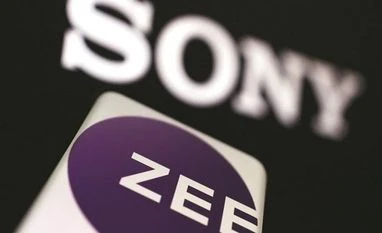Sony India and Zee Entertainment Enterprises (ZEEL) have agreed to sell three Hindi channels--Big Magic, Zee Action and Zee Classic--to address anti-competition concerns arising out of their proposed merger.
The broadcasters submitted their proposal to the Competition Commission of India (CCI), which gave a conditional approval on October 4. On Wednesday, the CCI made public its detailed 58-page order, specifying the channels that would be dropped.
Incidentally, all three channels belong to the Zee network. While Big Magic is a Hindi general entertainment channel, Zee Action and Zee Classic are Hindi-language film channels.
To put things in perspective, Zee TV and Sony Entertainment Television are the flagship channels of the two networks in Hindi general entertainment. The two players have a combined viewership share of 36 per cent in Hindi general entertainment, according to year-to-date data from the Broadcast Audience Research Council of India (BARC) sourced from the industry.
In Hindi movies, the combined viewership share is 33 per cent, while in Marathi and Bengali entertainment, the combined viewership shares are 38 per cent and 26 per cent, respectively.
The CCI order said that Zee and Sony agreed to the modification after the regulator felt that the deal would cause an “appreciable adverse effect on competition”.
Also Read
Deals beyond a certain threshold compulsorily require the approval of CCI, which seeks to ensure fair competition in the marketplace, legal experts said.
One of the conditions indicated by CCI in its order was that the purchaser of the channels to be offloaded would not be Star India or Viacom18, both rivals to Zee and Sony.
Specifically, the order said that the purchaser would be independent of and with no connection whatsoever with the resultant entity and its affiliates. And the purchaser would have the financial resources, expertise and incentive to maintain and develop the divestment business as a viable and active competitor in the market.
The CCI also said that in case the parties failed to comply with the voluntary modifications submitted, the proposed combination would be deemed to have caused an appreciable adverse effect on competition in India.
Zee and Sony had been in discussion with the anti-trust regulator for over a month to resolve issues with regard to the proposed merger. Ahead of the CCI's approval, the Bombay Stock Exchange (BSE) and National Stock Exchange (NSE) had given their go-ahead for the proposed merger on July 29.
On October 14, nearly 100 per cent of Zee shareholders had approved the proposed merger with Sony, paving the way for the next round of approvals.
The Zee-Sony combine will become India’s second-largest entertainment network by revenue with over 75 television (TV) channels, along with two video streaming services — ZEE5 and SonyLIV. It will also house two film studios — Zee Studios and Sony Pictures Films India — and a digital content studio (Studio NXT).
First announced in September last year, the merger was approved by the boards of the two companies in December after a 90-day due diligence period.
Under the terms of the arrangement, Sony will hold 50.86 per cent stake in the merged entity. The promoters of Zee will hold 3.99 per cent and other Zee shareholders will hold 45.15 per cent stake in the combined company.
Sony will also inject cash of $1.5 billion into the merged entity to enable it to drive sharper content creation across platforms, strengthen its footprint in the rapidly evolving digital ecosystem, and pursue other growth opportunities.
)